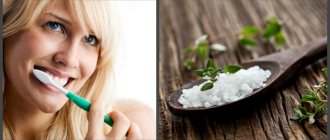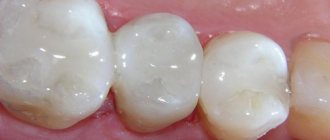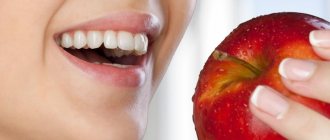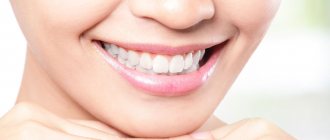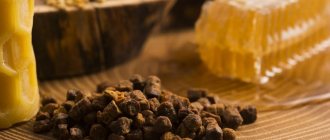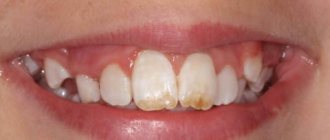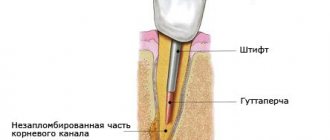Since childhood, we have all been told how important it is to eat right, that the vitamins and minerals entering our body are no less important than the food itself. These rules were especially remembered by those who, since childhood, did not like fish, cottage cheese, vegetables and other healthy foods. But our parents were right: our health greatly depends on what and in what quantities we eat. Even dental diseases very often arise precisely because of poor nutrition. What about tea, everyone’s favorite drink, so common in every home, in every family? Let's figure out what benefits it brings to our teeth, if, of course, we consume it without sugar.
What determines the color of teeth
It is believed that the color of the enamel determines the color of a person’s teeth, but in fact this is not entirely true. Tooth enamel can be milky white and translucent. Initially, in young people, it is quite dense and almost does not show through the underlying dentin, which in turn has a yellow, grayish or yellow-brown tint. The thicker the enamel, the whiter the teeth. The converse is also true.
Over the course of a person's life, the enamel becomes thinner and the color of the dentin appears. Hence the yellow or grayish smiles of older people. Food, drinks and tobacco also contribute to the darkening of teeth. Don’t forget about dental plaque and tartar, which absorb pigments much more strongly than enamel due to their porous structure.
A sudden change in the color of one or more teeth may indicate the presence of a disease. Thus, with fluorosis, teeth may acquire a brownish tint with whitish spots or stripes. Gray color occurs in pulpless teeth or may indicate heavy metal poisoning.
products beneficial for tooth enamel:
Hard cheeses
According to the results of the study, hard varieties of cheese contribute to the mechanical cleansing of the tooth surface, and in addition contain a large amount of calcium and phosphates that are beneficial for tooth enamel.
Celery
Celery is good for teeth, English scientists from the John Radcliffe Hospital in Oxford have proven. According to them, celery requires thorough chewing, which allows you to remove plaque and bacteria from the most inaccessible places. In addition, during this time, chewing produces a considerable amount of saliva, which has a bactericidal effect.
Green tea
The substances contained in green tea, catechins, are deadly to bacteria, which are commonly called carious monsters. And what prevents the development of caries is good for tooth enamel.
Onion
This vegetable is rich in phytoncides - natural bacteria destroyers. The unpleasant smell is not so bad; you can get rid of it by chewing a sprig of parsley or a menthol tablet.
How to keep your teeth white
To keep your teeth white, you need to:
- Perform good oral hygiene, including brushing, flossing, and using mouth rinse
- Using a waterpik at least twice a week to get rid of plaque
- Once or twice a year, have your mouth professionally cleaned by a dental hygienist to remove tartar.
- Limit or eliminate smoking, strong tea and coffee
It is also important to make regular visits to the dentist for diagnostic procedures. This will allow timely identification of problems and identification of deterioration of the enamel.
Harmful effects
As for the harm, here we will have to talk specifically about black tea. Just like coffee, it contains caffeine, which can stain tooth enamel. But, at the same time, black tea, like green tea, fights oral bacteria. The main thing to remember is that you need to brew tea and, if possible, avoid tea bags, since they do not provide any benefit to your teeth. Let us also remember about herbal teas: many dentists warn that this type of tea, if consumed in large quantities, can contribute to the destruction of enamel. In this case, fluoridation or dental implantation in Minsk will be simply necessary. But this is an additional waste of money that could have been avoided if you followed the doctors’ recommendations.
Teeth whitening and restoration techniques
If even careful care and regular professional hygiene do not allow you to completely get rid of yellowness, teeth whitening comes to the rescue. In our articles, we have already examined in detail the advantages and disadvantages of office and home whitening.
When darkening of the teeth is caused by severe thinning of the enamel, dental disease, or a general deterioration in the patient’s health, the first step is to correctly diagnose the problem and carry out appropriate treatment. Afterwards, it is possible to restore your smile with the help of veneers, lumineers and crowns.
We recommend that you try your best to keep your teeth healthy.
Benefits of tea
Green hour has a very beneficial effect on the oral cavity: it improves blood circulation in the gums and also strengthens the teeth. Thanks to the beneficial microelements contained in tea (fluoride, iron, zinc, calcium), you can even avoid inflammation of the gums and tissues surrounding the tooth, and also slightly whiten your teeth. Naturally, tea cannot make it snow-white like after a teeth whitening procedure in Minsk
Scientists have proven that people who regularly drink green tea visit the dentist much less often. This, of course, does not mean that lovers of this drink do not suffer from oral diseases; it’s just that tea has a kind of preventive effect, since it is considered a good antibacterial agent against caries. Why not help on the farm? Saves us money on dental treatment under anesthesia or any other dental procedures that help maintain healthy teeth. And for those who suffer from halitosis, or, in other words, bad breath, green tea can easily replace chewing gum or mints. In general, solid advantages, and that’s all.
Why brush your teeth at night
At night, the human body rests, and its main systems go into “sleep” mode. The salivary gland is no exception, which is why in the morning we feel dry mouth and a great desire to drink. This happens because during sleep, saliva is practically not secreted, which means it does not perform its important functions:
- does not wash away food particles and bacteria from the surface of the teeth
- does not help regulate the pH level (acid-base balance) in the mouth
Didn't you brush your teeth before bed? This means that they are left with plaque accumulated during the day, food particles, as well as microorganisms that will happily feed on them until the morning. In such a comfortable environment, colonies of bacteria will quickly form. All night long they will release acids that destroy enamel, as well as gases, which cause bad breath in the morning. All this can be avoided by brushing your teeth thoroughly after your last meal.
If you have to choose between mandatory brushing of your teeth in the morning or before bed, then give preference to the latter option. During the day, saliva, solid foods and water will help you cope with plaque and bacteria, but at night your teeth become defenseless.
Group 1. Fruits and vegetables
First, imagine yourself as a hare and give your soul to carrots and cabbage
(especially sea). Hard, carotene-rich carrots will not only nourish the gums and mucous membranes with vitamins, but will also act as a massager-simulator for them. Does it hurt to bite or chew? Carrots will not lose their properties if you grate them and season them with oil. Sea kale is rich in iodine and will benefit not only the teeth, but also the thyroid gland.
If the inner hare is not on strike, add apples and pumpkin
.
Both products clean, remove (gradually) plaque, and some varieties of apples also whiten. Gums especially love citrus fruits - now every tangerine
can be chalked up to health with a clear conscience.
And if you get into the habit of drinking tea with lemon
and adding
grapefruit
, then you can be called a caring owner of your own teeth.
The more green
(dill, parsley, lettuce, celery, onion, basil), the more saliva is released, the better the oral cavity is washed and there are fewer infections in it. Aerobatics is a green bed on the windowsill, but that’s if you’re serious.
Important:
All fruits and vegetables rich in calcium should be consumed with foods containing phosphorus: fish, beef, poultry, liver . In this form, they are absorbed better and will bring maximum benefit to the teeth.
VITAMINS AND MINERALS FOR YOUR TEETH HEALTH
The body receives the necessary substances from various foods. It is not always possible to diversify the menu enough to saturate all cells and tissues with valuable elements. The lack of nutrients makes the tooth and gum tissue weaker and worsens the condition of the oral cavity. Vitamins for teeth and gums are an excellent solution for people who want to maintain oral health.
A sufficient supply of valuable microelements and vitamins is the key to the normal functioning of the body. The lack of one or another component quickly affects the density of the gums and the strength of the teeth.
If you don't take timely measures, if your gums bleed, you can get a more serious illness, and bad breath can also indicate some diseases. Such seemingly small problems can even cause tooth loss. Not everyone knows that many dental diseases begin due to a lack of vitamins. In order not to subsequently experience discomfort from toothache, you need to be able to recognize which vitamin is missing, properly care for your oral cavity, eat well and take vitamins for your gums and teeth.
What vitamins are needed and beneficial for healthy teeth and gums:
Vitamin A
Vitamin A is most often associated with good vision, but it is also necessary for maintaining healthy mucous membranes covering the gums and cheeks. This vitamin makes them less susceptible to disease. It keeps tooth enamel healthy. Vitamin A promotes the production of saliva, which plays a very important role in clearing bacteria and food particles from the mouth. This organic compound is found in large quantities, as you, of course, know, in carrots. It is also abundant in other orange-colored vegetables and fruits (for example, mangoes and sweet peppers). A large amount of vitamin A is found in cabbage and spinach. More precisely, these vegetables contain a lot of beta-carotene, which is converted into vitamin A in the human body. And you should also remember about proteins (eggs, fish) - this organic compound is also present there in sufficient quantities.
Symptoms of deficiency:
- The gums begin to become inflamed, swelling and redness appear.
- Prolonged healing of wounds in the mouth.
- The enamel becomes rough.
- Teeth become loose
Vitamin B3
Vitamin B3 (niacin) is involved in many redox reactions in the human body. Its deficiency in the body can lead to mouth ulcers and bad breath. Good sources of this organic compound are fish and chicken. Vitamins B12 and B2 Due to a lack of vitamins B12 and B2 (riboflavin), ulcers may appear on the tongue, gums and soft tissues of the mouth. These vitamins prevent oral inflammation. Their deficiency leads to severe cases of gingivitis, inflammation of the gums without compromising the integrity of the periodontal junction. Vitamin B12 is found in large quantities in spinach, almonds, and whole wheat pasta. And there is a lot of vitamin B2 in meat, fish, dairy products and cheese.
Vitamin C
Vitamin C is needed to maintain healthy gum connective tissue. If there is not enough of it in the body, teeth may become loose and gums may begin to bleed. In general, in this case, the gums are seriously damaged. Did you know that scurvy, an acute gum disease, is caused by a lack of vitamin C? It should also be noted that consuming vitamin C with bioflavonoids prevents the formation of plaque around the teeth. Sources of bioflavonoids: oranges, apricots, cherries, etc. Vitamin C is rich in citrus fruits, strawberries, broccoli, bell peppers and sweet potatoes.
Symptoms of deficiency:
- Bleeding gums.
- Ulcers and wounds on the gums and in the mouth.
- Loose teeth.
- Frequent infectious diseases.
Vitamin D
Vitamin D is very important for oral health as it helps calcium to be absorbed. A lack of calcium often leads to poor dental development, gum disease and caries. Vitamin D deficiency causes burning mouth syndrome. Symptoms of this chronic disease are pain and burning in the mouth, numbness, dry mouth, and changes in taste. According to some reports, this syndrome may also be caused by a lack of vitamin B. Good sources of vitamin D: eggs, fish, milk and cod liver. You can get the entire daily requirement of this vitamin by being in the sun for 15 minutes.
Symptoms of deficiency:
- Dry mouth.
- Metallic taste.
- Caries, tooth decay
Vitamin E
Vitamin E is a very powerful antioxidant. It is useful for restoring oral tissues. It also reduces gum soreness in young children when they are teething. Vitamin E is found in sunflower seeds, nuts, leafy green vegetables, fish, avocados, and peanut butter. Calcium A sufficient amount of calcium in the human body keeps his teeth in good condition. Regular consumption of this mineral protects tooth enamel. If the body does not have enough calcium, it automatically takes it from the bones, which leads to their softening. Calcium is quickly absorbed into the blood, so it needs to be consumed in large quantities. Calcium also protects against osteoporosis, a disease that causes decreased bone density, including around the teeth. Calcium is present in dairy products, green leafy vegetables, cauliflower, legumes, soy milk, almonds, sardines, salmon, oysters.
Symptoms of deficiency:
- Dry mouth.
- Ulcers in the mouth.
- Increased tooth sensitivity
Phosphorus
Phosphorus, like calcium, is an integral part of teeth. According to scientific research, in order for calcium to be well absorbed into the body, it must be consumed together with phosphorus, which is abundant in milk, cheese, yogurt, red meat, beans, lentils, nuts and whole grains. Iron Due to insufficient iron in the body, the tongue may become inflamed and ulcers may appear in the mouth. The fact is that iron helps maintain red blood cells at the required level, thanks to which the immune system effectively fights diseases and infections. Good sources of iron: eggs, seafood, red meat, liver, bran, green leafy vegetables.
Symptoms of deficiency:
- Pain in joints and bones.
- Frequent bone fractures.
- Development of anemia.
- Subcutaneous hemorrhages.
- Periodontal disease
Potassium
Potassium is indispensable in the formation and restoration of bones, including, of course, jaw bones. It protects against osteoporosis and participates in the regulation of redox processes in the body. Potassium is necessary for blood clotting (small wounds in the mouth heal faster). There is a lot of potassium in legumes, leafy green vegetables, milk, yogurt, cheese, mushrooms, bananas, rose hips, and green tea. Fluoride In dentistry, fluoride is used to counteract the breakdown of tooth enamel. Please note that fluoride is often an ingredient in toothpastes. It is used precisely to protect tooth enamel and fight caries. Fluoride can be found not only in toothpaste, but also in some foods. For example, there is a lot of it in black tea and seafood.
Symptoms of deficiency:
- Nose and gastrointestinal bleeding.
- Bleeding gums.
- Subcutaneous hemorrhages
Iodine The trace element iodine is involved in almost all vital processes of the body. It promotes the absorption of calcium, and thus helps teeth grow and maintains them in good condition. Iodine is necessary for the proper functioning of the thyroid gland. If the functioning of the thyroid gland malfunctions, this leads to problems with metabolism. Iodine is found in seaweed, shellfish, sesame, and garlic.
Zinc
The trace element zinc, if sufficient in the body, controls the level of bacteria in the mouth. And these bacteria, naturally, if there are too many of them, destroy teeth and gum tissue. So zinc has to be closely monitored so that bacteria do not multiply too much in the mouth. Zinc is found in large quantities in red meat, cheese, oysters, legumes, mushrooms, pumpkin seeds and dark chocolate.
Magnesium The trace element magnesium protects tooth enamel from thinning and destruction and strengthens it. This trace element is found in cabbage, spinach, and dark chocolate.
Folic acid
With a lack of folic acid (vitamin B9) in the mouth, problems arise with the mucous membrane, tongue, and ulcers appear (aphthous stomatitis). Overall, this is a very important vitamin for oral health. It is found in spinach and lettuce leaves, parsley, cabbage, onions, potatoes, meat, liver, and kidneys.
Doctors and nutritionists say that the more varied a person’s diet, the lower the risk of developing a lack of nutrients.
To strengthen teeth and gums, it is necessary not only to eat well, but also to take into account that some vitamins and minerals cannot be absorbed normally without following certain rules. For example, calcium cannot be absorbed without vitamin D. Therefore, no matter how much fish you eat, if the body does not have enough vitamin D, then calcium will not be absorbed from it. Vitamin A is fully absorbed only in the company of vitamin E. Therefore, carrots are recommended to be consumed together with vegetable oil.
All kinds of oral care products are also sources of vitamins and minerals.
Dentist-therapist of the highest category
Rudkovskaya Elena Vatslavovna
What not to eat after teeth whitening
The white diet after teeth whitening is a set of nutritional rules that dentists recommend to patients who have undergone a whitening procedure. Its main principle is to avoid dishes, foods and drinks containing large amounts of coloring substances. These include:
- Strong coffee, tea and drinks based on them;
- Juices, wines, fruit drinks, lemonades;
- Chocolate, other dishes and drinks containing cocoa;
- Vegetables (especially fresh ones) that can cause staining - beets, carrots and the like;
- Products containing bright colors.
- Ketchup, adjika and other colored sauces, spices.
You should also avoid eating foods containing large amounts of acids: citrus fruits, other vegetables, berries and fruits. You should also reduce your consumption of dairy products and sauces. In addition, people who smoke should give up this habit for a while or reduce the number of cigarettes they smoke.
Group 2. Main courses
Among the meat products, liver
and other
offal
,
turkey
.
And if you eat 100 grams of lightly fried beef tenderloin
, you can very well improve hemoglobin and cure anemia.
Seafood is the basis of healthy teeth. Try to eat sea fish rather than river fish - it is more valuable due to its high iodine and calcium content. As a side dish for meat and fish dishes, it is better to use vegetables rather than potatoes or rice
.
